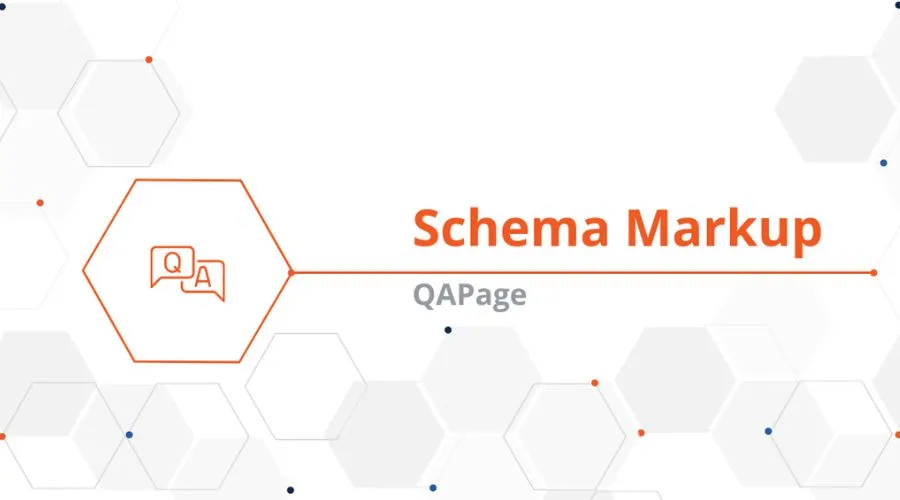In the dynamic landscape of online visibility, where search engines strive to understand and categorize vast amounts of information, webmasters and developers seek tools that can enhance their websites’ presence. One such powerful tool is the Schema Markup Generator. This blog delves into the world of Schema Markup, exploring its significance, the diverse types of markup available, and how Schema Markup Generators can be instrumental in optimizing your website for search engines.
Decoding Schema Markup: Unraveling the Language of Search Engines
In the intricate web of algorithms that power search engines, Schema Markup acts as a language that provides explicit cues about the content on a webpage. As search engines crawl and index websites, structured data markup helps them understand the context, relationships, and attributes of various pieces of information. The first section of our journey explores the fundamentals of Schema Markup, shedding light on how it enhances the search engine’s comprehension of your content.
Types of Schema Markup

Schema Markup comes in various types, each designed to cater to specific content categories. We unravel the versatility of Schema Markup by exploring its most common types: Article, Product, Event, and Organization. From detailing news articles to showcasing product information and describing upcoming events, Schema Markup allows webmasters to provide search engines with a richer understanding of their content. This section provides insights into how different types of Schema Markup contribute to more engaging and informative search results.
Schema Markup Generator Tools
Implementing Schema Markup might sound like a task reserved for coding experts, but enter Schema Markup Generator Tools, and the landscape shifts. In this section, we delve into the user-friendly interfaces of these tools, designed to simplify the process for webmasters, content creators, and developers alike. Whether you’re managing a blog, an e-commerce platform, or an organisational website, Schema Markup Generators empower you to add structured data without extensive coding knowledge.
- Advertisement -
The Benefits of Rich Snippets and Enhanced Search Results
The true measure of Schema Markup’s effectiveness lies in its impact on search engine result pages (SERPs). Rich Snippets, those visually enhanced search results featuring additional information, are a direct result of well-implemented Schema Markup. This section explores the benefits of enhanced search results, such as increased click-through rates, improved user engagement, and a more comprehensive presentation of information. We uncover how Schema Markup, when generated effectively, can elevate your website’s visibility and user experience.
Manual Coding vs. CMS Plugins
Grasping the nuances of Schema Markup implementation stands as a pivotal skill for webmasters. This segment extensively examines two prevalent methods of implementation: the meticulous art of manual coding and the user-friendly realm of Content Management System (CMS) plugins. Delving into the intricacies of each approach, we not only shed light on their respective merits and drawbacks but also provide valuable insights to guide webmasters in deciding when to opt for the precision of manual coding and when the efficiency of CMS plugins can significantly hasten the implementation process.
Understanding how to implement Schema Markup is crucial for webmasters. This section delves into two common implementation methods: manual coding and Content Management System (CMS) plugins. Exploring the pros and cons of each approach, offering insights into when manual coding might be preferable and when leveraging CMS plugins can expedite the process. Whether you prefer the hands-on control of manual coding or the convenience of CMS plugins, a thorough understanding of these methods empowers webmasters to enhance their websites for improved search engine visibility and user experience.
Examples of Schema Markup Generator

1. E-commerce Product Markup
Scenario: An online electronics retailer implemented Schema Markup for their product pages, including details like product name, price, availability, and customer reviews.
Result: Search engines displayed rich snippets in the search results, showcasing product ratings, prices, and availability directly on the search page. This increased click-through rates and improved the user experience by providing essential information at a glance.
2. Local Business Markup
Scenario: A local restaurant used Schema Markup to provide structured data about its business, including operating hours, address, cuisine type, and customer reviews.
Result: The restaurant’s business information was prominently displayed in local search results, making it more accessible to users looking for nearby dining options. This led to increased visibility, foot traffic, and improved online engagement.
3. Event Markup for a Conference Website
Scenario: An annual industry conference website implemented a Schema Markup for event details such as date, location, agenda, and participating speakers.
Result: Search engines displayed enhanced search results with detailed information about the conference schedule and speakers. This improved the conference’s online visibility and attracted more attendees by providing comprehensive information directly in search results.
4. Book Review Markup for a Publishing Site
Scenario: A book review website utilized Schema Markup to provide structured data about book reviews, including author information, ratings, and publication dates.
Result: Search engines showcased rich snippets with book ratings, author details, and review snippets directly in search results. This not only improved the website’s click-through rates but also established the site as a reliable source for book-related information.
5. FAQ Markup for a Technical Support Website
Scenario: A technology support website incorporated Schema Markup for frequently asked questions (FAQs) related to common troubleshooting issues.
Result: Search engines displayed rich snippets with specific FAQ entries in search results, making it easier for users to find immediate answers. This led to a reduction in support ticket submissions, as users could often resolve issues independently based on the provided information.
Ensuring Accuracy and Relevance: Best Practices for Schema Markup Implementation

Schema Markup implementation is paramount for optimizing a website’s search engine performance. Best practices dictate a meticulous alignment of markup with actual content to provide search engines with precise information. Start by selecting the appropriate Schema.org vocabulary relevant to the content type, be it products, events, or reviews. Maintain consistency by accurately reflecting the details on the webpage within the markup, ensuring a harmonious match that enhances search engine understanding. Regularly update the markup to reflect any changes in content, such as price adjustments or event dates, guaranteeing users receive current and trustworthy information. Additionally, adhere to structured data guidelines, avoiding deceptive practices or irrelevant markup, to prevent potential penalties from search engines. By adhering to these best practices, websites can foster a reliable online presence, improve user experience, and maximize the impact of Schema Markup on search engine visibility.
Conclusion
It becomes clear that these tools are pivotal in the quest for online visibility and search engine optimization. From decoding the language of search engines to tailoring information for diverse content types and exploring real-world case studies, Schema Markup and its generators offer a robust solution for webmasters seeking to enhance their websites. By leveraging the power of structured data and adhering to best practices, webmasters can not only communicate more effectively with search engines but also provide users with a richer and more informative online experience. Embrace the capabilities of Schema Markup Generators, learn from successful implementations, and unlock the full potential of your website in the ever-evolving landscape of the digital world.
For more information visit Proxy Geeko







